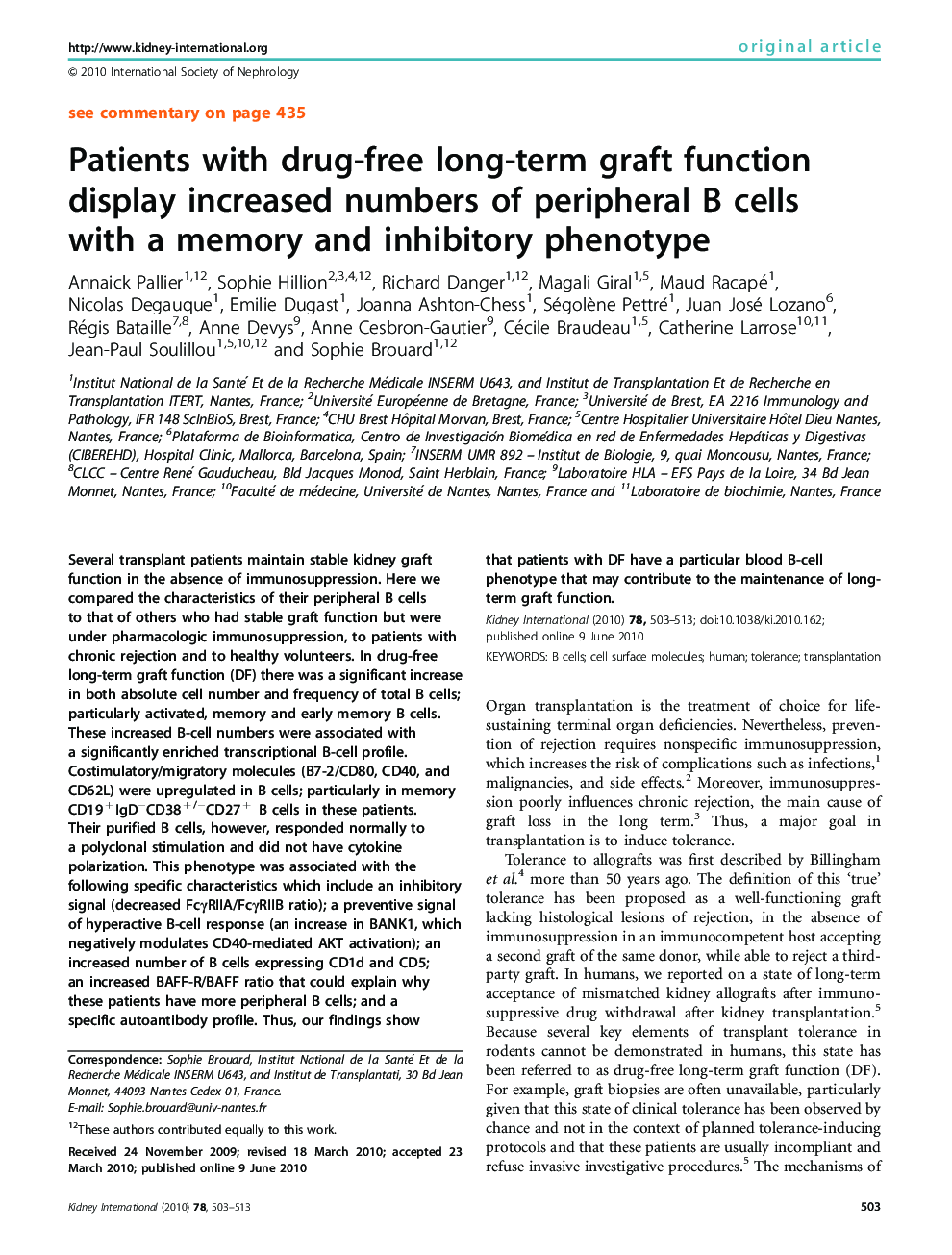| Article ID | Journal | Published Year | Pages | File Type |
|---|---|---|---|---|
| 3883585 | Kidney International | 2010 | 11 Pages |
Several transplant patients maintain stable kidney graft function in the absence of immunosuppression. Here we compared the characteristics of their peripheral B cells to that of others who had stable graft function but were under pharmacologic immunosuppression, to patients with chronic rejection and to healthy volunteers. In drug-free long-term graft function (DF) there was a significant increase in both absolute cell number and frequency of total B cells; particularly activated, memory and early memory B cells. These increased B-cell numbers were associated with a significantly enriched transcriptional B-cell profile. Costimulatory/migratory molecules (B7-2/CD80, CD40, and CD62L) were upregulated in B cells; particularly in memory CD19+IgD−CD38+/−CD27+ B cells in these patients. Their purified B cells, however, responded normally to a polyclonal stimulation and did not have cytokine polarization. This phenotype was associated with the following specific characteristics which include an inhibitory signal (decreased FcγRIIA/FcγRIIB ratio); a preventive signal of hyperactive B-cell response (an increase in BANK1, which negatively modulates CD40-mediated AKT activation); an increased number of B cells expressing CD1d and CD5; an increased BAFF-R/BAFF ratio that could explain why these patients have more peripheral B cells; and a specific autoantibody profile. Thus, our findings show that patients with DF have a particular blood B-cell phenotype that may contribute to the maintenance of long-term graft function.
